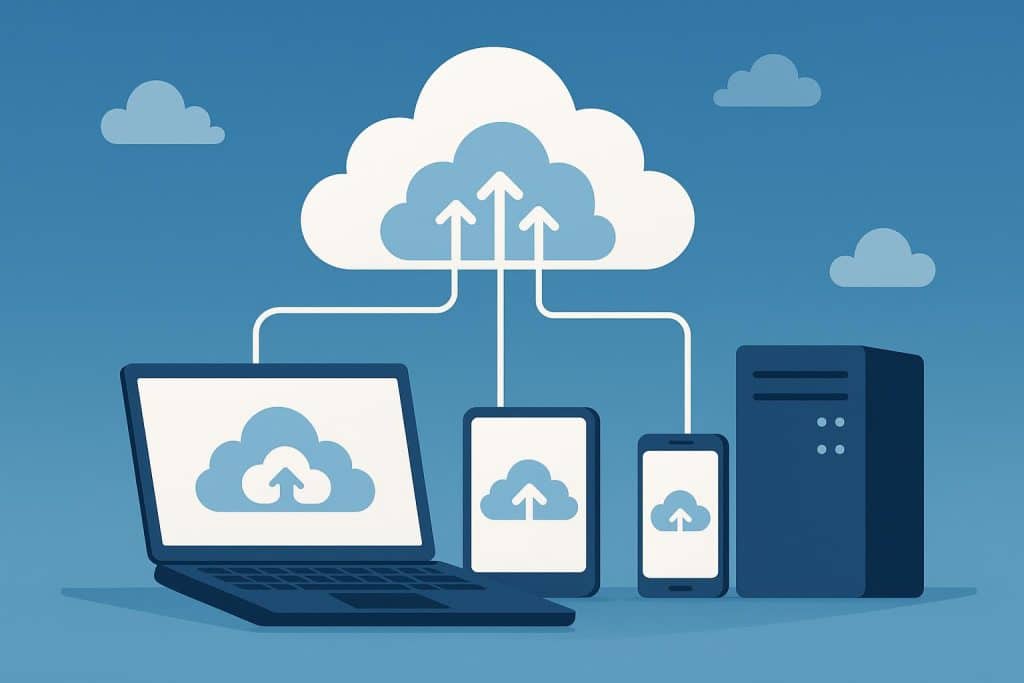In the modern enterprise, the IT department is under unprecedented pressure. It is expected to be an impenetrable fortress against cyber-attacks, a catalyst for digital innovation, and a model of financial efficiency—all at the same time. For many in-house teams, these demands are simply untenable. They are stretched thin, spending the vast majority of their time on mundane maintenance, leaving little room for strategic projects. This operational friction is precisely why enterprises are making the strategic switch to Cloud Managed Services, a move that delivers immediate, measurable benefits.
This transition allows an enterprise to hand over the complex, 24/7/365 management of its cloud infrastructure to a dedicated third-party expert. This isn’t just a simple outsourcing play; it’s a strategic partnership designed to optimize performance, enhance security, and control costs. By leveraging Cloud Managed IT Services, enterprises gain access to a deep bench of specialized talent and advanced tools they could not otherwise afford, all while freeing their internal teams to focus on core business objectives.
Choosing the right partner is critical to unlocking this value. A provider like Opsio Cloud acts as an extension of your internal team, aligning its technological expertise with your specific business goals. For any enterprise looking to gain a competitive edge, the benefits of this model are too significant to ignore. Here are the top seven.
1. Drastic Cost Reduction and Predictable Spending
Enterprises often suffer from massive “cloud sprawl” and “bill shock.” A managed services provider implements rigorous FinOps (Cloud Financial Operations) from day one. They analyze your spending, eliminate “cloud waste” (like idle servers or unattached storage), and apply cost-saving measures like reserved instances. This move shifts your IT spending from a volatile, unpredictable Capital Expenditure (CapEx) model to a lean, predictable Operational Expenditure (OpEx) model, often resulting in immediate and significant savings.
2. Instant Access to Elite, Specialized Expertise
The skills gap is real and growing. Hiring and retaining certified experts in cloud architecture, cybersecurity, and data engineering is incredibly difficult and expensive. When you partner with an MSP, you instantly gain access to an entire team of these specialists. This “talent-as-a-service” model means you have enterprise-grade expertise on-demand, 24/7, for a fraction of the cost of building that team in-house.
3. A Proactive, 24/7/365 Security Posture
For an enterprise, a security breach is a financial and reputational catastrophe. Most in-house teams operate on a reactive “break-fix” security model. A managed provider implements a proactive, 24/7 security operations center (SOC). They use advanced AI-powered tools (like SIEM and SOAR) to monitor, detect, and respond to threats in real-time—often before they can do damage. This includes rigorous patch management, identity access control, and vulnerability scanning, hardening your defenses significantly.
4. Guaranteed Uptime and Proactive Monitoring
Downtime is revenue lost. Cloud Managed Services are governed by a strict Service Level Agreement (SLA) that legally guarantees a high percentage of uptime (e.g., 99.99%). This is achieved through proactive, 24/7 monitoring. The provider’s systems detect anomalies and potential issues, like failing hardware or memory spikes, and resolve them before they can cause an outage, ensuring your critical applications are always available.
5. Rapid Scalability and Business Agility
The enterprise market moves fast. You need an infrastructure that can scale with you. A managed services provider gives you the agility to scale resources up or down in minutes, not months. Whether you’re launching a new product in a new region or handling a seasonal traffic surge, your infrastructure can respond instantly. This eliminates the old-world problem of over-provisioning hardware “just in case” and allows you to perfectly match resources to demand.
6. Renewed Focus on Core Business Innovation
This is the most transformative benefit. When your most talented (and expensive) internal IT staff is liberated from the daily grind of patching, backups, and troubleshooting, they are free to do what you hired them for: innovate. They can focus on developing new applications, analyzing business data, and driving digital transformation projects that create real, measurable value and move the company forward.
7. Robust Disaster Recovery and Business Continuity
What happens if your primary data center goes down due to a fire, flood, or major attack? An enterprise-grade managed services provider builds sophisticated, automated disaster recovery (DR) solutions. They ensure your critical data is securely backed up and replicated, with a clear, tested plan to failover to a secondary site. This robust business continuity planning means that in the face of a disaster, you can be back online in minutes or hours, not days or weeks.
